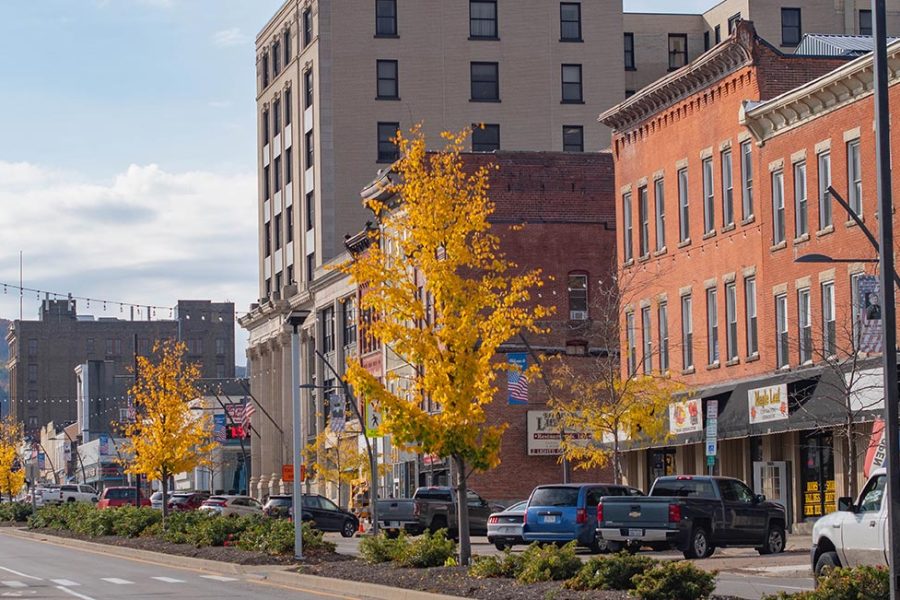- Navigator
- Expansion Solutions
- Arts, Entertainment, Recreation, and Events
- Retail, Services, and Accommodations
- Rural
- Industry Analytics and Strategy

This article originally appeared in the July/August 2024 edition of Expansion Solutions magazine.
The 2024 solar eclipse brought tourists from across the nation to the path of totality. This was noticeable in the stopped traffic on highways, crowds on mountains and around lakes, and on every social media platform for days to follow. While sungazers thought we were lucky to have experienced such a tremendous event in our lifetimes, the truly fortunate individuals were those who hosted guests on their properties and profited off the rare celestial experience. Hospitality providers are reporting record-high profits following the solar eclipse, shining a light (pun intended) on the opportunity associated with what we are calling “agriexperiences.”
The input costs associated with farming have been steadily rising over the past few years. In fact, according to the United States Senate Committee on Agriculture, Nutrition, and Forestry, “Since 2020, the total costs paid by farmers to raise crops and care for livestock increased by more than $100 billion, or 28%.” Furthermore, according to the 2022 USDA Census of Agriculture, every factor of production expenses — feed, livestock purchased, hired labor, cash rents, supplies and repairs, seeds, chemicals, fuels, interest, and other — has increased in cost from 2017, with the most significant increase being in feed at $25.7 billion total.
Customers cannot justify paying farmers’ market prices when supermarket prices are closer to what they are used to. At the same time, farmers must keep their pricing in line with the cost of doing business to maintain an operable business.
So, how are these farmers staying in business? Many have become agritourism providers, adding a hospitality arm to their farming business as a way to generate additional income. The profits from hosting overnight stays, classes, hayrides, goat yoga classes, and more help farmers make ends meet and maintain the farming lifestyle. In fact, according to Lancaster Farming, there are over 86,000 agritourism operators around the country as of April 2024.
Why Agritourism?
While finances are an excellent reason for hosting agritourists, there are a wealth of benefits beyond simply profit. Perhaps most importantly, hosting and engaging tourists helps build a strong brand and turns one-time visitors into dedicated customers and brand ambassadors who will share the products purchased while visiting the farm and their positive experiences with friends and family.
Welcoming guests onto a farm also means allowing them to see the behind-the-scenes aspects of farm life, giving them a greater appreciation for the goods produced and sold. This awareness of time, quality, and process can increase a customer’s willingness to pay higher prices as they understand the value of the inputs and, therefore, the value of the output.
This understanding is key at a societal level, as the information will be shared at the grocery store or across a dinner table, and building public awareness of the value of local food is crucial to ensuring that it is purchased.
Agritourism is an advantageous side business because it is separate from farming. The process, needs, and outputs are different, meaning that if one is failing, the other may survive. This diversification is a powerful tool for ensuring success and prosperity. At the same time, agritourism is a large enough revenue generator that farmers can focus on just two large ventures rather than trying to take on many different and time-consuming smaller ventures (i.e., farming + breeding horses + selling wedding bouquets + packaging microgreens, etc.). This approach not only supports financial stability for the farmers but also enriches the community, making agritourism a win-win for both farmers and their visitors.
Agritourism is especially important for small and medium-sized farms that lack the benefits of economies of scale enjoyed by larger agricultural businesses. These farms often struggle with higher per-unit costs and lower overall production volumes, making it challenging to compete in traditional agricultural markets.
But how do you make agritourism successful? Many farmers considering agritourism ask this question, and this year’s solar eclipse offered a whisper of an answer. Ruth Pepler, owner of Dogwood Hills Guest Farm in Harriet, Arkansas, told me that offering lodging and farm-to-table breakfast and dinner during the eclipse covered their expenses (edible store inventory and much of the pantry items) for the summer. Given what I know from working on their farm, this is significant, and they are not the only ones who profited from the event.
Lessons on Agriexperiences from the Eclipse
My research into farms throughout the eclipse’s path of totality showed that many opened up their properties to sungazers for a price. While some allowed cars to simply park on the property for $10 per vehicle, others offered overnight stays, farm-to-table dinners, and more. For example, Better Farm in Redwood, New York, offered a “Path of Totality Package,” a two-night stay for two with family-style farm-to-table breakfast and a cocktail party for $400. Similarly, Poulette Farm in Thayer, Missouri, sold tickets to “Something Shady on the Farm,” which included a pair of eclipse glasses, a farm-to-table meal, and commemorative items for $275 per person.
While these packages would be incredible any day of the year, the eclipse significantly increased the demand and the price. Essentially, agritourism providers and those who supported them used the eclipse to create an agriexperience, a unique event that drove business to their farms.
The eclipse was unusual in that it was over very quickly, it was a rare celestial event, and only certain places could see it in totality. What we can learn from this is the importance of scarcity and exclusivity when creating agriexperiences.
No Eclipse? Create Your Own Agriexpeirences
While allowing people a peek into farm life is special, it is no different than what other farms can provide, and not worth driving more than a few hours to visit. In order to draw that kind of attention, farmers and communities must try to differentiate themselves.
One way to create successful agriexperiences is to determine the area’s niche. If the farm is located in Appalachia, tap into Appalachian lore by inviting cryptozoologists to give talks, having local storytellers come for a bonfire, or leading a walk through the woods after dark.
If the farm is located in a region known for growing a specific crop, such as peaches, host a peach festival during peak season and make an event out of it by inviting the local news station, organizing a parade, having a peach pie contest, or inviting people to pick peaches and pay by the basket.
Importantly, these events should be limited in size and frequency. If anyone can go pick peaches on the farm at any time, there is no excitement. However, if the last weekend in May is the peach festival on the farm and there are only so many tickets, people will scramble for them.
Another way to create appealing agriexperiences is to lean into history and tradition. Do a bit of research to uncover the historical values or traditions of the town and find ways to bring those back. Not only is this a fun way to change the normal routine in town, but it is an educational opportunity as well. For example, if your community used to have a big square-dancing scene, host an annual barn dance with local musicians and a farm-to-table dinner. Limit the tickets and ensure that the event is well covered in the news and on social media. This will become an event that people look forward to every year and will help get them familiar with the farm and farmers.
A final tip for community developers or farmers when creating agriexperiences is to lean into small happenings and make them big. People like to be part of something. A big reason so many people wanted to see the eclipse was the desire not to miss out and to be part of the conversation.
People like to get excited about an event, even if they did not know about it before you brought it to their attention. Even something as small as the first weekend of the year that the spring peepers sing their song could be turned into an all-night banjo-playing, frog-listening event at the farm. What was once just background noise could become the sound that visitors travel and gather to listen for so they can say they heard the first peep.
How Can Economic Developers Support Agritourism?
Economic developers can play a crucial role in supporting agritourism within their communities by assisting with promotion and marketing, licensing, technical services, and insurance processes.
Promotion and Marketing
Promotion and marketing are essential to increase the visibility of agritourism providers and highlight the fun opportunities available. Economic developers can reach a wide audience through local tourism websites and social media, creating attractive promotional videos, and engaging with their networks. This support is particularly crucial because marketing and social media management are not typically within a farmer’s skill set.
Economic developers can bridge this gap, providing the expertise needed to create compelling campaigns that farmers may not have the time or experience to execute. These marketing and promotion efforts can be further amplified by collaborating with local businesses and tourism boards to turn simple farms into well-known, in-demand agritourism locations.
Licensing
Another key role for economic developers is related to licensing. Navigating the agritourism licensing ecosystem can be daunting for farmers because it is often perceived as complex, mysterious, and time-consuming. Many are unfamiliar with the intricacies of local regulations, zoning laws, and health and safety standards required to host tourists on their properties and are concerned that they will face legal repercussions for licensing mistakes. This fear and the unfamiliar territory can deter farmers from becoming agritourism providers.
Economic developers can demystify the process by providing clear guidance, support, and resources. By helping farmers understand the specific licenses needed, assisting with paperwork, and facilitating connections with regulatory bodies, economic developers can ease the burden and allow farmers to spend their time focusing on their business.
General Technical Services
Beyond licensing, general technical services are another vital component of supporting agritourism. Providing workshops, training, consultations, and mentorship on topics such as tourism, sustainable practices, digital marketing, and business administration can help providers be successful and fill any gaps in their skills or knowledge.
Insurance
The final point at which economic developers can be of most help is the topic most widely discussed at agritourism conferences: insurance. Inviting people who are unfamiliar with the animals, terrain, and infrastructure to your property can be a serious safety risk, and insurance is critical to providing protection for both farmers and visitors.
Economic developers can play a pivotal role in helping farmers identify and secure insurance coverage that meets their needs, offers adequate protection, and aligns with local agritourism requirements.
Economic
If we learned anything from the recent solar eclipse (other than the importance of wearing protective eyewear), it is that experiences and events help drive demand at agritourism businesses. While we may not have another solar eclipse next year, agritourism providers can create agriexperiences to attract tourists, and economic developers can provide marketing and technical support.
This collaboration to drive agritourism not only supports the financial well-being of farmers but also enhances local economic growth and encourages appreciation of locally grown food and rural landscapes.
Learn more about Camoin Associates’ Industry Analytics and STRATEGY services
📍 Related Articles:





